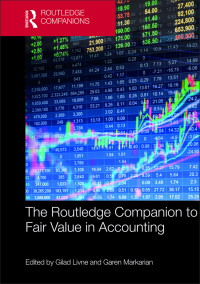Question
The Chartered Global Management Accountant (CGMA) designation is one of a few different credentials available to managerial accountants today. Part of the mission of the
The Chartered Global Management Accountant (CGMA) designation is one of a few different credentials available to managerial accountants today. Part of the mission of the CGMA is to promote management accounting globally by providing a platform to distinguish professionals with proficiency in finance, operations, strategy, and management and the value they can add to an organization.
On the CGMA website, there are some business case studies featuring some of the value strategies that managerial accountants have exercised successfully at major corporations.

1. After reading the scenario, identify 3 tools you have learned about that could be utilized to achieve the success mentioned in the case and why you believe these tools to be relevant.
P&G In the early 1990's Procter & Gamble (P&G) launched a major restructuring programme. The idea behind the restructure was aimed at making the company's brand name products more price-competitive with private label and generic brands. In addition, the organisation wanted to bring products to market faster. The combination of these two initiatives would then improve overall profitability. Alex explains that with multiple brands and high volumes, targets were met with relative ease at the UK manufacturing plants. However, when P&G made the strategic decision to rationalise its investment in certain brands, plan volume decreased by 20%. The organisation realised they needed to look into the situation more closely and find out what happened. "We were unhappy with the change in plan volume obviously," commented Alex. "So it was critical that wastage be critically reviewed, both in terms of energy and people. We brought in a team of people to look into it and analyse how we could change things to improve the situation." By using their CGMA skills, the team at one North England plant made a big impact on their bottom line by pulling in all the relevant data and information into one central place. They then matched the core financials to cultural and organisational conventions. The team used a variety of methods such as using labour variance analysis, and deploying managers on to the production lines to garner deeper insights into performance obstacles. As a result the plant was able to reduce waste and improve cost enough to stay open for a further three years and win business for another brand. Alex concludes, The application of management accounting tools and techniques combined with the closer integration of managers and production line staff changed the 'them and us' dynamic. The result ensured a higher performing and agile business culture at the P&G plant." The CGMA designation Two of the world's most prestigious accounting bodies, AICPA and CIMA, have formed a joint venture to establish the Chartered Global Management Accountant (CGMA) designation to elevate the profession of management accounting. The designation recognises the most talented and committed management accountants with the discipline and skill to drive strong business performance. P&G In the early 1990's Procter & Gamble (P&G) launched a major restructuring programme. The idea behind the restructure was aimed at making the company's brand name products more price-competitive with private label and generic brands. In addition, the organisation wanted to bring products to market faster. The combination of these two initiatives would then improve overall profitability. Alex explains that with multiple brands and high volumes, targets were met with relative ease at the UK manufacturing plants. However, when P&G made the strategic decision to rationalise its investment in certain brands, plan volume decreased by 20%. The organisation realised they needed to look into the situation more closely and find out what happened. "We were unhappy with the change in plan volume obviously," commented Alex. "So it was critical that wastage be critically reviewed, both in terms of energy and people. We brought in a team of people to look into it and analyse how we could change things to improve the situation." By using their CGMA skills, the team at one North England plant made a big impact on their bottom line by pulling in all the relevant data and information into one central place. They then matched the core financials to cultural and organisational conventions. The team used a variety of methods such as using labour variance analysis, and deploying managers on to the production lines to garner deeper insights into performance obstacles. As a result the plant was able to reduce waste and improve cost enough to stay open for a further three years and win business for another brand. Alex concludes, The application of management accounting tools and techniques combined with the closer integration of managers and production line staff changed the 'them and us' dynamic. The result ensured a higher performing and agile business culture at the P&G plant." The CGMA designation Two of the world's most prestigious accounting bodies, AICPA and CIMA, have formed a joint venture to establish the Chartered Global Management Accountant (CGMA) designation to elevate the profession of management accounting. The designation recognises the most talented and committed management accountants with the discipline and skill to drive strong business performanceStep by Step Solution
There are 3 Steps involved in it
Step: 1

Get Instant Access to Expert-Tailored Solutions
See step-by-step solutions with expert insights and AI powered tools for academic success
Step: 2

Step: 3

Ace Your Homework with AI
Get the answers you need in no time with our AI-driven, step-by-step assistance
Get Started


